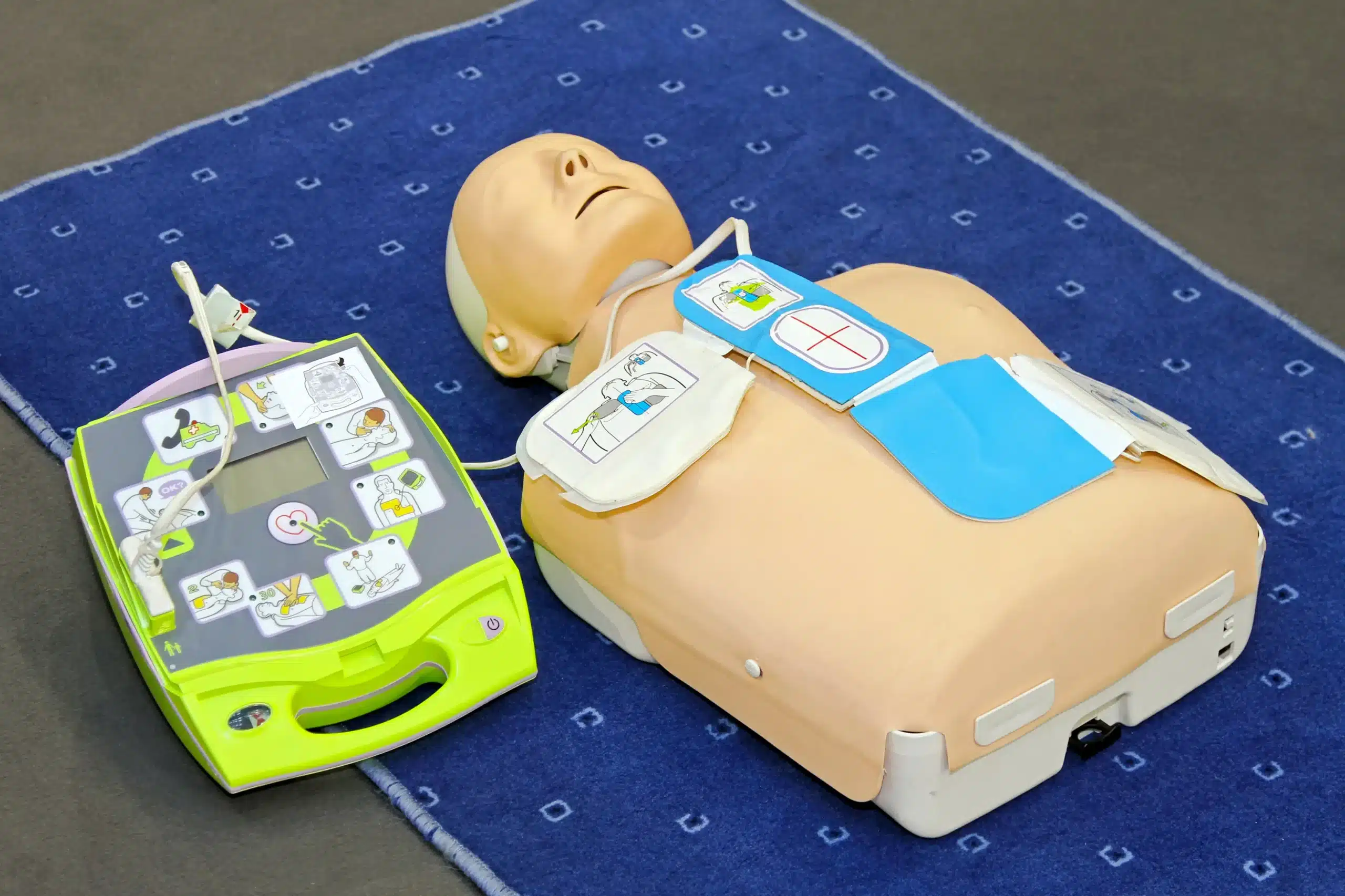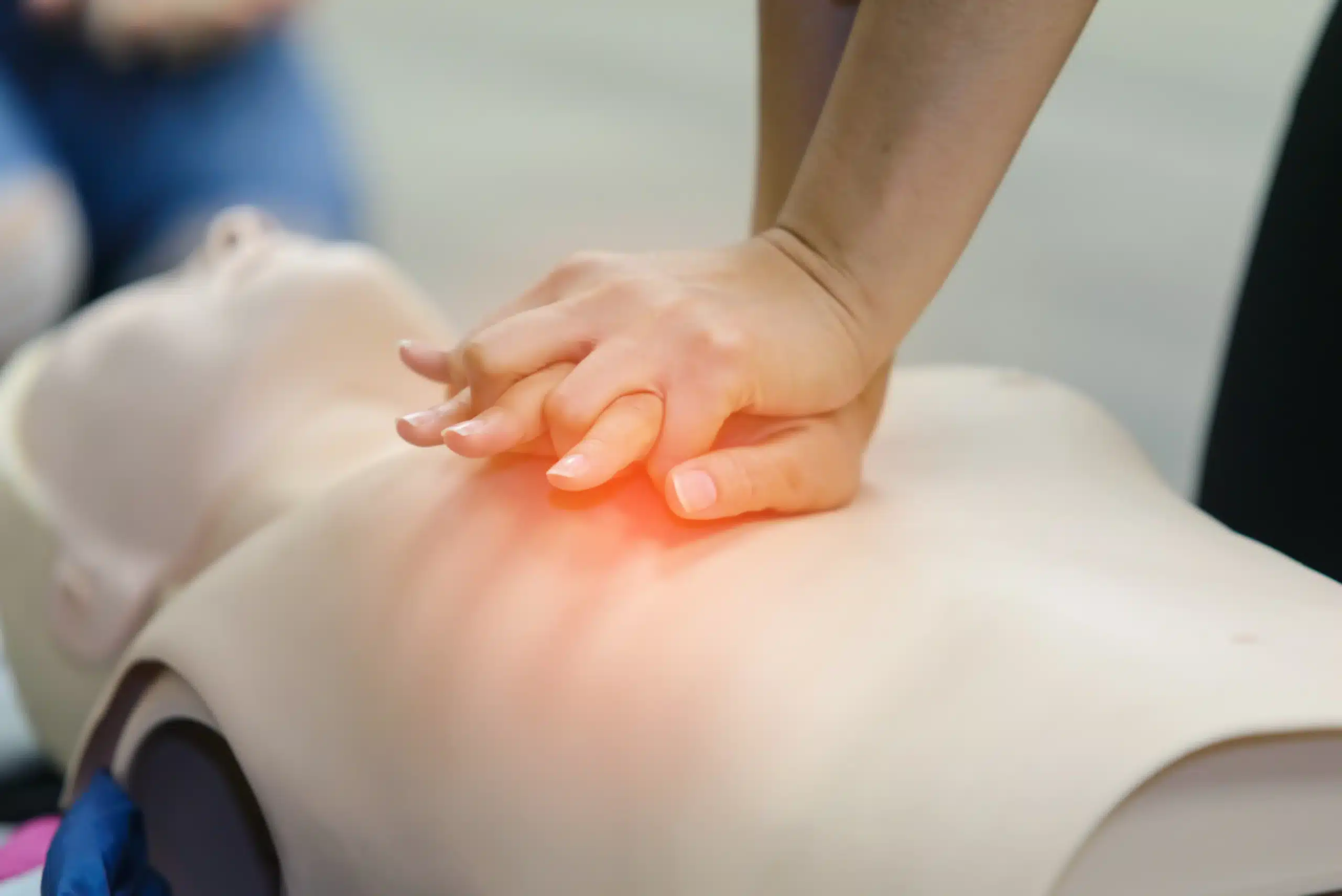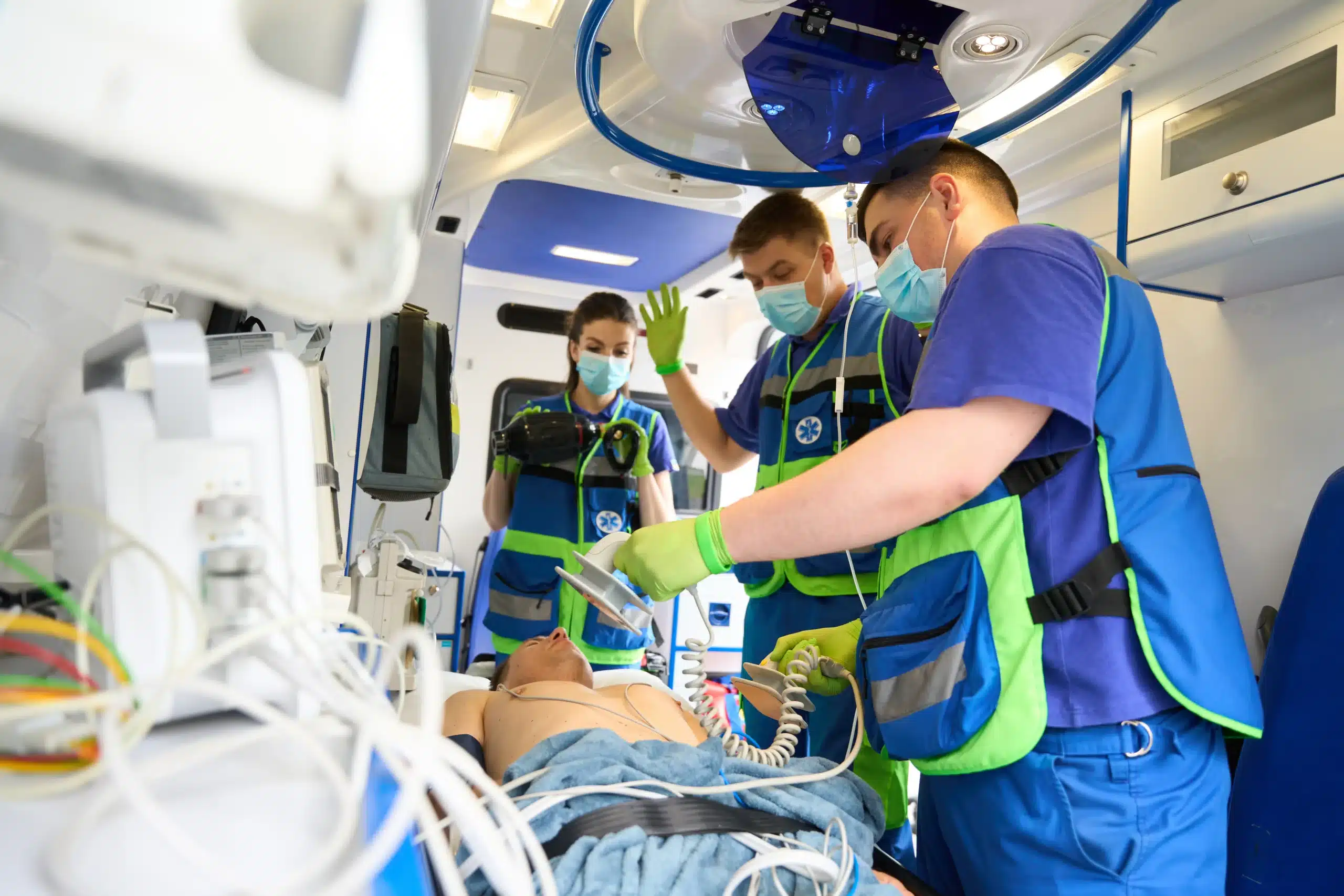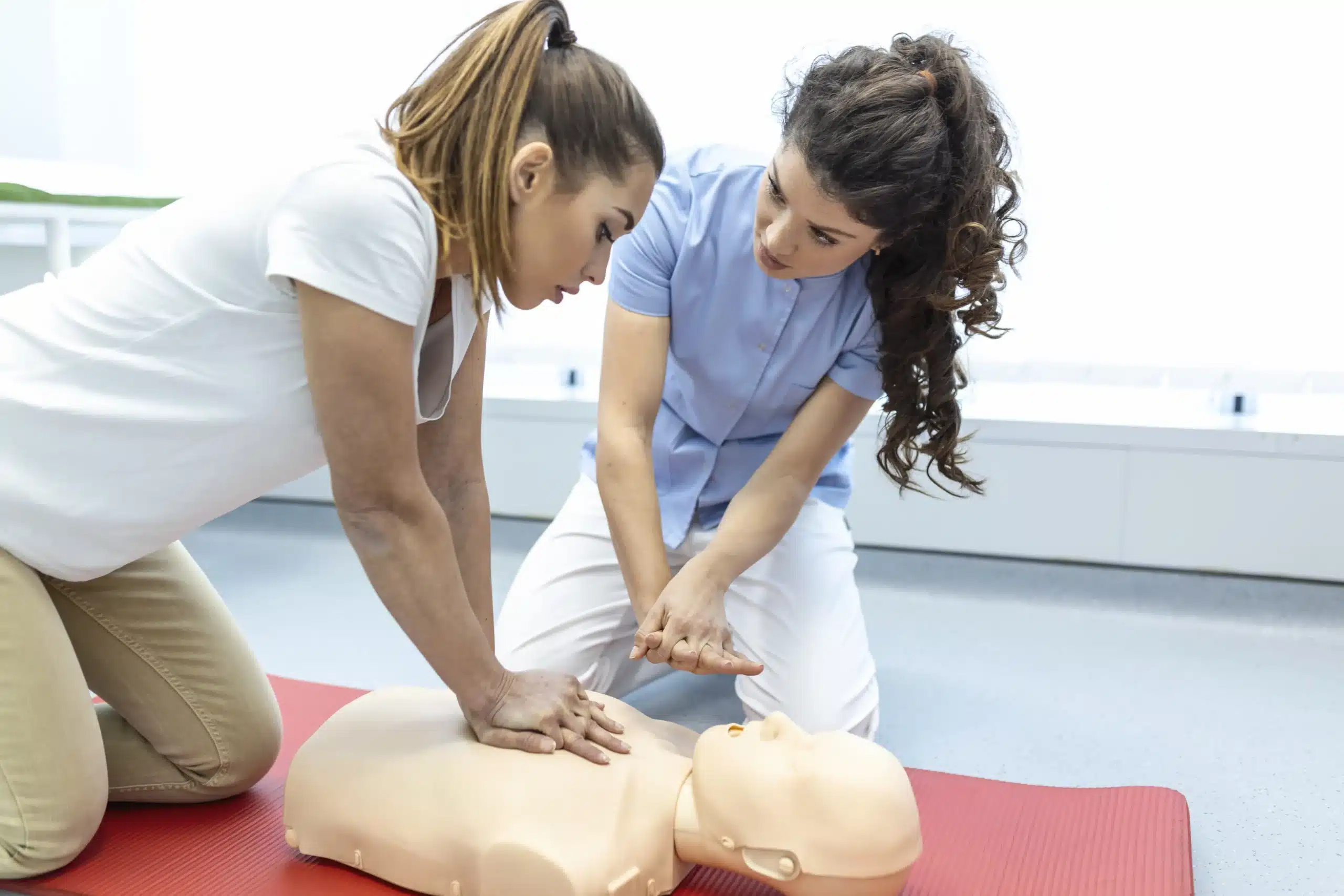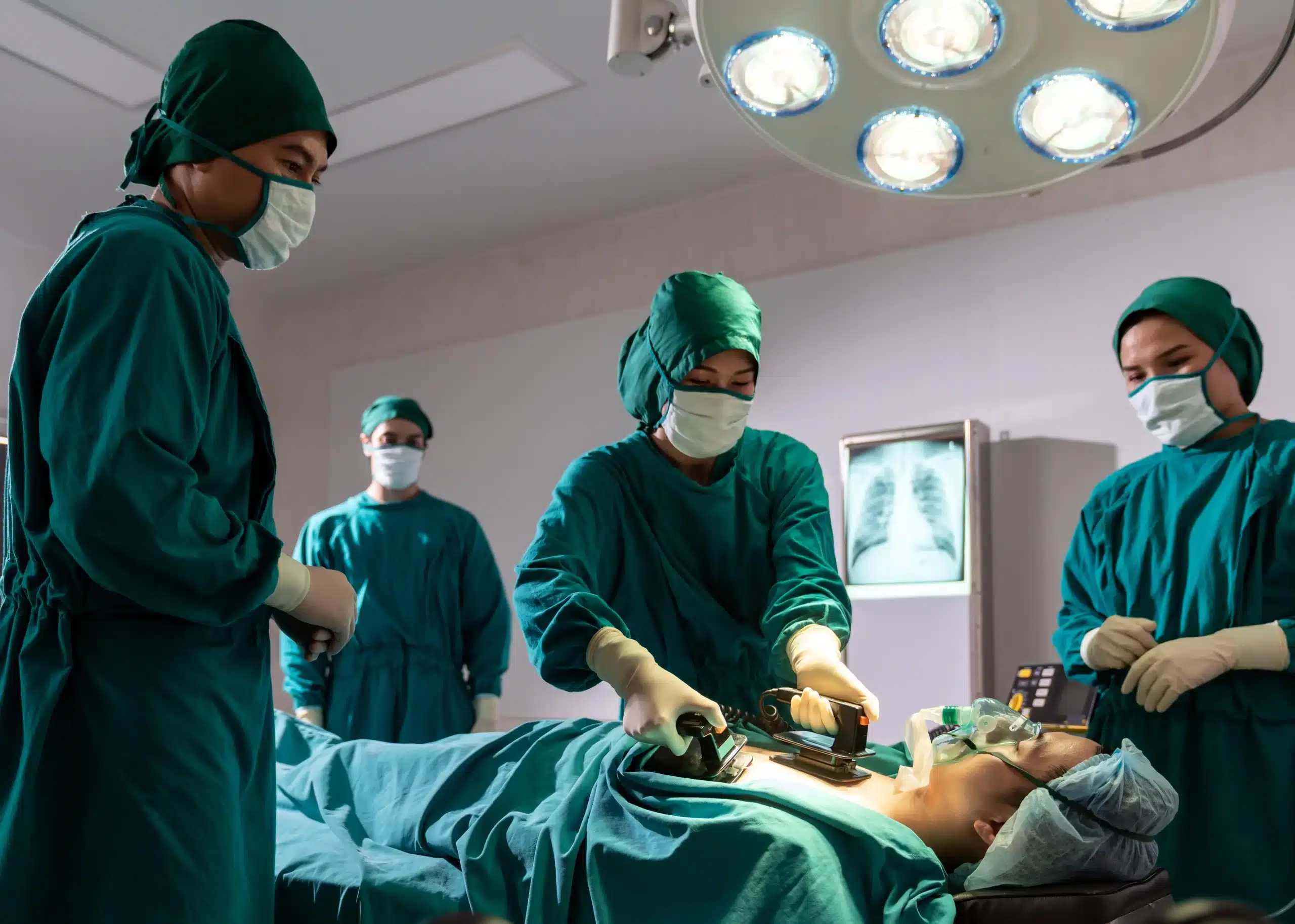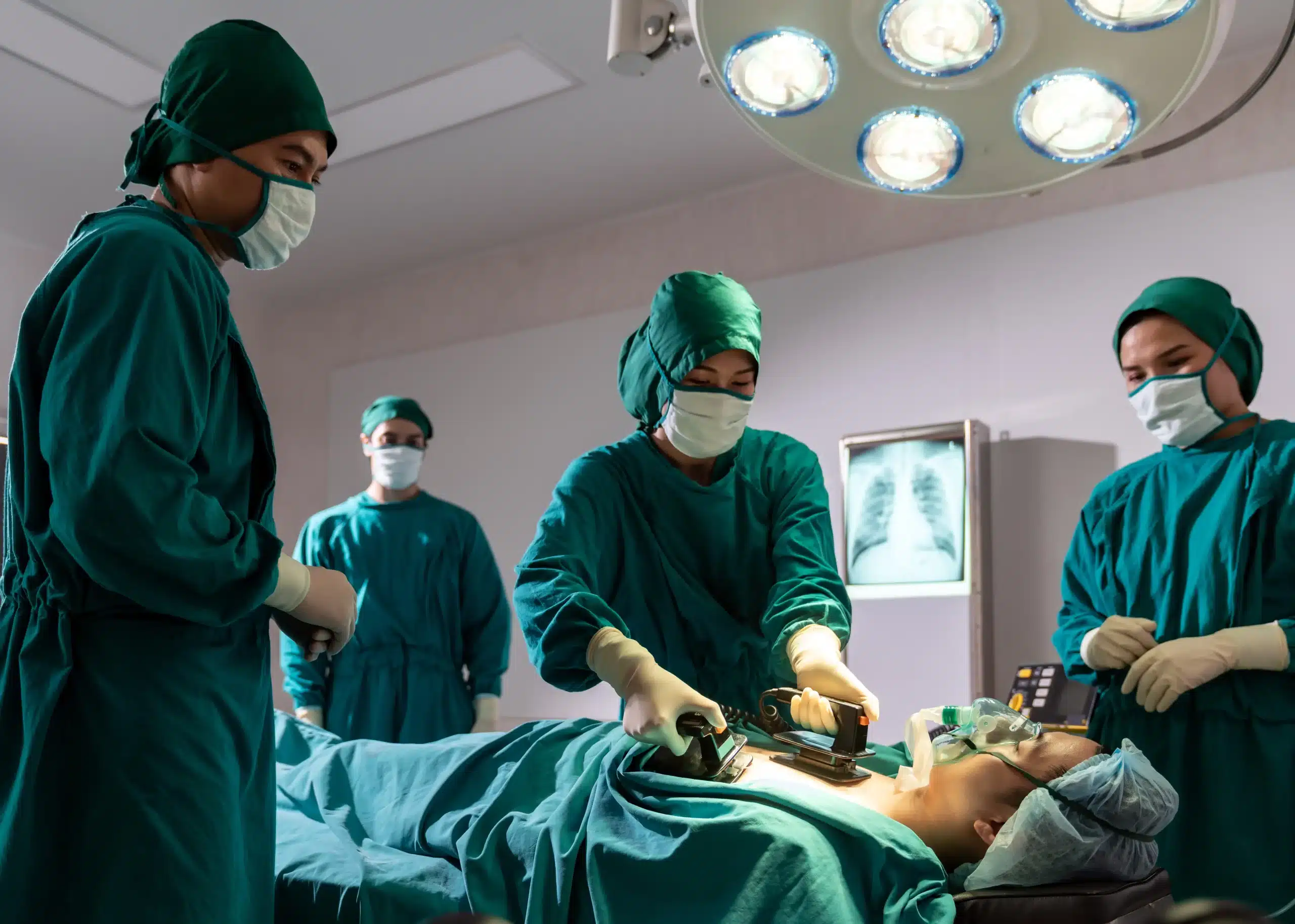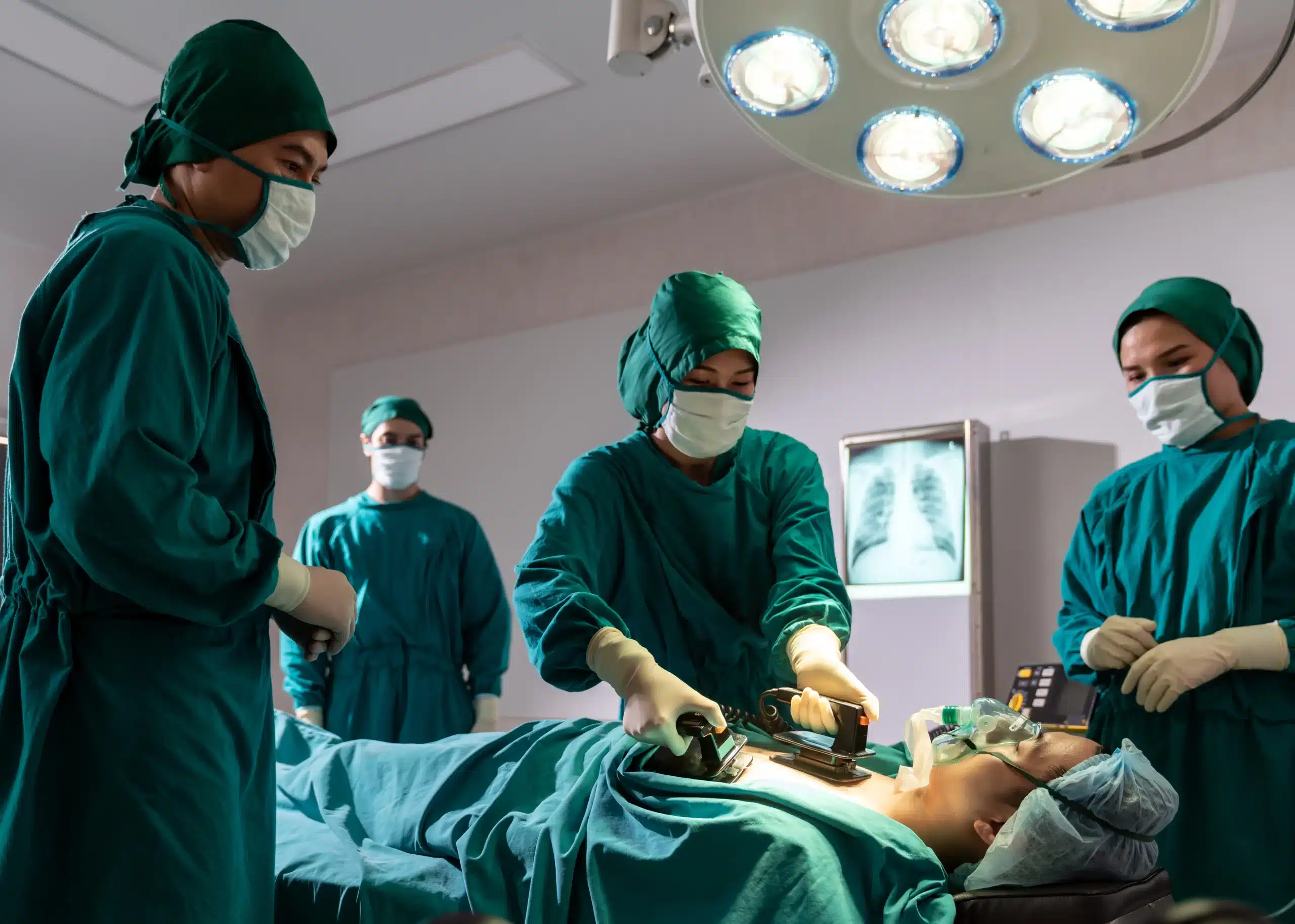As a healthcare provider, you know that seconds can matter in a pediatric emergency. Having the skills to respond swiftly and effectively can make all the difference. That’s where Pediatric Advanced Life Support (PALS) training comes in. Whether you’re a seasoned professional looking to renew your certification or just starting your journey in pediatric care, finding the right PALS course is essential. This guide explores everything you need to know about pediatric advanced life support in Corte Madera, from course formats and costs to prerequisites and what to expect during training. We’ll also cover valuable resources and tips for maintaining your certification, ensuring you’re always prepared to provide the best possible care to your young patients.
Key Takeaways
- PALS equips you to handle pediatric emergencies: This specialized training provides the skills to assess, diagnose, and manage life-threatening situations in infants and children, covering everything from respiratory distress to cardiac events.
- Find the right PALS course for your needs: Explore various learning formats, including blended learning and online options, to fit your schedule and preferred learning style. Consider factors like location, cost, and instructor experience when making your decision.
- Stay current with PALS best practices: Maintain your certification through renewal courses and continuing education opportunities. Keep up with the latest guidelines and connect with other PALS providers to ensure your skills remain sharp.
What is Pediatric Advanced Life Support (PALS)?
Pediatric Advanced Life Support (PALS) is specialized training designed to equip healthcare providers with the skills to handle pediatric emergencies. The program focuses on the critical care of infants and children, offering evidence-based protocols for managing life-threatening situations. PALS prepares providers to quickly assess, recognize, and manage a range of emergencies, from respiratory distress and shock to cardiac arrest. Through lectures, demonstrations, and hands-on practice, PALS courses teach participants how to identify children needing immediate intervention and initiate appropriate treatment. This training emphasizes high-quality care, ultimately leading to better patient outcomes. PALS certification is essential for any medical professional involved in the care of critically ill children, whether in a hospital or responding to emergencies in the field. The course covers a range of topics, including recognizing and managing respiratory and cardiac events, shock, and post-resuscitation care. By mastering these skills, healthcare providers can confidently deliver the best possible care to young patients facing life-threatening conditions.
Find Top PALS Training in Corte Madera
Finding the right Pediatric Advanced Life Support (PALS) training is crucial for healthcare providers. Here are a few options to consider in and around Corte Madera:
San Rafael CPR Classes
Located just a short drive from Corte Madera, San Rafael CPR Classes offers PALS training that fits your schedule. They offer daily classes, conveniently located at 4340 Redwood Hwy, Suite F-154, San Rafael, CA 94903, with extended hours from 8 am to 10 pm. Their blended learning approach combines online coursework with in-person skills sessions, ensuring you get both the knowledge and practical experience you need.
In-Home CPR
If you prefer a more personalized approach, In-Home CPR brings PALS certification courses directly to you. Serving the entire San Francisco Bay Area and Sacramento, they offer training at your home or workplace. With highly-rated instructors known for their engaging teaching style, In-Home CPR provides a comfortable and effective learning environment.
SureFire CPR
For healthcare professionals seeking comprehensive PALS certification, SureFire CPR offers American Heart Association (AHA) certified courses. Their training covers essential skills such as pediatric assessment, respiratory emergencies, and airway management, giving you the confidence to handle critical pediatric situations.
American Red Cross
The American Red Cross is a trusted name in emergency preparedness, and they also offer PALS training. Designed for healthcare providers and first responders, their courses equip you with the skills to manage life-threatening emergencies in children.
PALS Course Formats & Durations
Choosing the right PALS course format depends on your schedule, learning style, and whether you’re getting certified for the first time or renewing an existing certification. Let’s break down the options:
Initial PALS Course
If you’re new to PALS, the initial certification course typically takes about 10 hours. This timeframe allows for in-depth instruction and plenty of hands-on practice. San Rafael CPR Classes offers various schedules for the initial PALS course to accommodate busy professionals and students.
PALS Renewal Course
For those renewing their PALS certification, the renewal course is shorter, clocking in around six hours. It focuses on refreshing essential skills and updating your knowledge on the latest guidelines. Check with San Rafael CPR Classes for convenient PALS renewal courses in Corte Madera.
Blended Learning
Prefer a mix of online and in-person training? Blended learning, like the PALS HeartCode program, combines online modules with a hands-on skills session. This approach offers flexibility and personalized instruction, allowing you to learn at your own pace before practicing your skills in a real-world setting. Learn more about the PALS HeartCode Blended Learning option.
Online Learning
For those short on time or who prefer online learning, some providers offer a fully online PALS course. These courses typically take three to four hours and cover the same core material as in-person classes. However, keep in mind that online courses may require a separate in-person skills session for hands-on practice and evaluation. Explore our online PALS course to see if it fits your needs.
PALS Certification: Costs & Value
Getting PALS certified is an investment in your career and the lives of your young patients. Let’s look at the costs associated with PALS certification and the value it brings.
Course Costs
PALS certification costs vary depending on the training provider, location, and course format (online, blended, or in-person). For example, San Rafael CPR Classes offers a blended learning PALS course for $290, including online learning and in-person skills testing. Other providers, like SureFire CPR, offer initial PALS certification ranging from $205 to $255 and renewals from $155 to $160. Compare prices and choose the best option for your budget and learning style. Also, check for group discounts or special offers. San Rafael CPR Classes also offers a low price guarantee.
Materials & Resources
Most PALS courses provide comprehensive study materials to help you prepare. These might include textbooks, online resources, and practice exams. Some providers, like Electronic Medical Certification, offer a PALS Provider Manual created by medical professionals. These resources cover essential topics like pediatric assessment, treatment of life-threatening conditions, and high-quality care for infants and children facing cardiac or respiratory emergencies. Access to these materials is crucial for completing the course and building confidence in your skills.
Certification Benefits
The value of PALS certification goes beyond the initial cost. This specialized training gives you the skills to manage pediatric emergencies effectively, improving patient outcomes. PALS certification shows your commitment to quality care and enhances your professional credibility. After completing the course, you’ll receive a two-year PALS certification, often required for healthcare professionals working with infants and children. This certification can create new career opportunities and give you the confidence to handle critical situations calmly and competently.
PALS Certification: Prerequisites & Requirements
Before you jump into a Pediatric Advanced Life Support (PALS) course, it’s helpful to understand the prerequisites and get a sense of what you’ll need to know. Having the right foundation ensures you’re ready to make the most of this intensive training.
Pediatric BLS Certification
One of the most fundamental requirements for PALS certification is a current pediatric Basic Life Support (BLS) certification. PALS builds upon these core life-saving skills, focusing on the critical steps needed to respond to life-threatening emergencies in infants and children. This prerequisite ensures you’re comfortable with basic resuscitation techniques before moving on to more advanced PALS concepts. You can find BLS certification courses at San Rafael CPR Classes.
ECG & Pharmacology Knowledge
While not strictly mandatory for enrollment in most PALS courses, a solid understanding of electrocardiograms (ECGs) and pharmacology is highly recommended. The PALS curriculum covers interpreting pediatric ECG rhythms and administering medications in emergency situations. Having some familiarity with these topics beforehand will give you a significant advantage, allowing you to focus on applying these principles within the PALS context, rather than learning the basics simultaneously.
Recommended Preparation
To make the most of your PALS training, consider taking ECG and pharmacology courses before your PALS class. This preparation will give you a stronger foundation for understanding the advanced concepts covered in the course. Think of it as building a solid base for a house—the stronger the base, the more stable the entire structure. This extra effort will pay off during your PALS course, allowing you to absorb the material more effectively and confidently apply it in real-world scenarios.
What Happens During PALS Training?
PALS training equips you with the skills to handle pediatric emergencies. It’s not just about memorizing steps; it’s about understanding why those steps are crucial. Let’s break down what you can expect during your PALS course.
Key Skills You’ll Learn
PALS courses cover a wide range of skills, from recognizing early signs of deterioration to providing advanced life support. You’ll learn how to assess a child’s condition quickly and accurately, identify the underlying cause of the emergency, and deliver appropriate interventions. The focus is on high-quality care for a variety of life-threatening situations, including respiratory distress, shock, and cardiac events. The American Red Cross emphasizes the importance of teamwork and communication in emergency settings, preparing you to work effectively as part of a coordinated response team. You’ll also develop critical thinking and problem-solving skills to adapt your approach based on each unique situation.
Hands-on Practice & Simulations
PALS training isn’t just lectures and textbooks. Hands-on practice is a core component, allowing you to apply your knowledge in realistic scenarios. Many programs, like our PALS HeartCode blended learning course, combine online modules with in-person skills sessions. Simulations help you build muscle memory and confidence, so you can react swiftly and effectively under pressure. This practical experience is invaluable in preparing you for real-world pediatric emergencies.
Evaluation
After completing your PALS training, you’ll be evaluated to ensure you’ve mastered the necessary skills. This typically involves a written exam and a practical skills test, where you’ll demonstrate your proficiency in various procedures. Successful completion earns you your PALS certification, often provided as a digital card by the American Heart Association. This certification is valid for two years, demonstrating your competence in providing pediatric advanced life support.
Common Challenges
One of the biggest hurdles for healthcare professionals seeking PALS certification is finding the time to fit training into their busy schedules. Juggling work commitments with coursework and practice sessions can be tough. However, many training centers offer flexible scheduling options, including weekend and evening courses, to accommodate busy professionals. Don’t let time constraints hold you back from gaining these essential skills. Reach out to our team to discuss options that fit your schedule.
Why Choose PALS Training in Corte Madera?
Corte Madera offers several advantages for those seeking PALS certification. Whether you’re a healthcare provider in the Bay Area or live nearby, you’ll find programs designed to fit your needs and schedule. Here’s why Corte Madera stands out:
Convenient Location
Located just north of San Francisco, Corte Madera offers easy access for anyone living or working in Marin County. Skip the commute to the city and find PALS training right in your neighborhood. This convenient location minimizes travel time and allows you to focus on what matters most—gaining the skills to provide critical care to pediatric patients. For those in the North Bay, San Rafael CPR classes offers convenient options.
Expert Instructors
Learn from experienced professionals passionate about pediatric care. Instructors often include EMTs, RNs, paramedics, and medical students, ensuring you receive high-quality instruction from those actively working in the field. In-Home CPR highlights their team’s expertise and experience.
Flexible Scheduling
Juggling work, family, and other commitments can make finding time for training challenging. Corte Madera offers flexible scheduling options, including weekend and evening classes. This flexibility allows you to pursue PALS certification without disrupting your busy schedule.
Interactive Learning
PALS courses in Corte Madera often incorporate interactive learning methods, such as the PALS HeartCode blended learning program. This approach combines online learning with hands-on skills sessions, providing a dynamic and engaging learning experience. You’ll gain a deeper understanding of the material through interactive exercises and simulations. Learn more about the PALS HeartCode program and its benefits.
Comprehensive Curriculum
PALS training covers a wide range of essential topics, from recognizing life-threatening situations to providing high-quality post-resuscitation care. You’ll learn how to assess, recognize, and manage pediatric emergencies, including shock, respiratory distress, and cardiac events. This comprehensive curriculum equips you with the knowledge and skills to confidently respond to pediatric emergencies. In-Home CPR provides a detailed overview of what their PALS course covers.
Maintain Your PALS Certification
Keeping your PALS skills sharp is crucial for providing the best possible care to young patients. This section covers how to maintain your certification and stay at the top of your game.
Recertification
PALS certification is typically valid for two years. To maintain your credentials, you’ll need to recertify before it expires. This involves completing a PALS renewal course, which covers the latest guidelines and best practices in pediatric advanced life support. Check with your certifying organization, such as the American Red Cross, for specific recertification requirements and course availability. They offer various learning formats to fit your schedule.
Continuing Education
Many PALS providers take advantage of continuing education to enhance their knowledge and skills. Continuing education courses can provide valuable updates on new research, techniques, and technologies in pediatric emergency care. These courses may also offer CE credits for EMS professionals and nurses, helping them meet licensing requirements.
Stay Updated on Guidelines
The field of pediatric advanced life support is constantly evolving. Staying informed about the latest guidelines is essential for providing effective care. Organizations like the International Liaison Committee on Resuscitation (ILCOR) and the American Heart Association regularly publish updated guidelines for resuscitation and emergency cardiovascular care. Reviewing these resources will ensure your practices align with current recommendations. Staying current with these updates ensures you’re prepared for any pediatric emergency.
Post-Training Support
After completing your PALS training, look for opportunities to reinforce your learning and seek ongoing support. Some training providers offer refresher courses or online resources to help you maintain your skills. Connecting with other PALS providers can also create a valuable network for sharing experiences and best practices. Consider joining online forums or attending local workshops to stay engaged with the PALS community. This ongoing engagement will help you build confidence and maintain your proficiency in providing high-quality pediatric advanced life support.
Related Articles
- BLS ACLS PALS Training in San Rafael – San Rafael CPR Classes
- PALS HeartCode Corte Madera: Online & Skills Session – San Rafael CPR Classes
- Online PALS Classes in Fairfax: Your Guide – San Rafael CPR Classes
- AHA PALS Classes in San Rafael, CA – San Rafael CPR Classes
- BLS ACLS PALS Training in San Rafael: Complete Guide
Frequently Asked Questions
What is the difference between PALS and BLS?
BLS, or Basic Life Support, focuses on the foundational skills needed for immediate response to life-threatening emergencies like cardiac arrest or choking. PALS, or Pediatric Advanced Life Support, builds upon those BLS skills and delves into the more specialized care required for infants and children. Think of BLS as the essential first steps, while PALS provides the advanced knowledge and techniques for managing pediatric emergencies.
How long does it take to get PALS certified?
The time commitment for PALS certification depends on whether you’re taking an initial course or renewing your certification. Initial PALS courses typically require around 10 hours to cover all the material and practice scenarios. Renewal courses are shorter, usually around six hours, as they focus on refreshing existing skills and updating knowledge. Blended learning options, which combine online modules with in-person skills sessions, offer more flexibility in how you complete the training.
How much does PALS certification cost?
The cost of PALS certification varies based on the training provider, location, and course format. Expect to invest anywhere from $150 to $300. Some providers offer group discounts or package deals, so it’s always a good idea to compare prices and inquire about any special offers. Remember, the investment in PALS training translates to enhanced skills and career advancement, making it a worthwhile expense.
What are the prerequisites for taking a PALS course?
A current pediatric BLS certification is the main prerequisite for enrolling in a PALS course. This ensures you have the fundamental life-saving skills as a foundation for the more advanced PALS training. While not always mandatory for enrollment, a good understanding of ECG interpretation and pharmacology is highly recommended, as these topics are integral to the PALS curriculum.
How can I fit PALS training into my busy schedule?
Many training centers understand the demands on healthcare professionals’ time and offer flexible scheduling options. Look for courses offered on weekends, evenings, or in a blended learning format that allows you to complete some coursework online at your own pace. Don’t hesitate to contact training providers directly to discuss your scheduling needs and find a course that fits your lifestyle.
